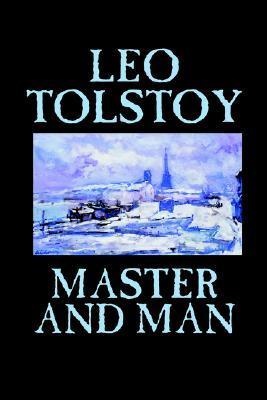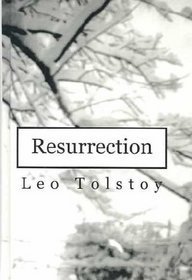
Master and Man
Book Description
On a treacherous winter night, a simple journey transforms into a desperate struggle for survival. With a master driven by greed and a servant bound by loyalty, their contrasting motivations collide against the biting cold and the unforgiving wilderness. As each hour stretches into an eternal battle with the elements, their journey unveils the raw essence of human relationships, echoing the eternal conflict between wealth and compassion. What will it take for them to confront their true selves? In the end, will they find redemption or be lost to the relentless storm?
Quick Book Summary
"Master and Man" is a poignant tale by Leo Tolstoy that explores human nature, class dynamics, and spiritual awakening. Set during a bitter Russian winter, the story follows Vasili Andreevich, a wealthy landowner motivated by self-interest, and his humble servant, Nikita, as they embark on a journey to a nearby village for a business transaction. Caught in a blizzard, their divergent responses to the crisis reveal the deep contrasts in their characters. As survival becomes uncertain, the experience strips away social pretenses, exposing the vulnerability and interconnectedness of human life. Ultimately, the story evolves from a physical battle against the elements to a profound moral reckoning, culminating in themes of sacrifice, compassion, and redemption.
Summary of Key Ideas
Table of Contents
Class and Social Hierarchies
At the outset, "Master and Man" introduces Vasili Andreevich, a prosperous and self-centered merchant, who sets out with his loyal servant Nikita to secure a lucrative deal despite an approaching snowstorm. Driven by greed and impatience, Vasili disregards warnings about the weather. Their relationship is characterized by a clear social divide, as Vasili views Nikita primarily as a tool for his ambitions, while Nikita dutifully follows, enduring ill-treatment and hardship with stoic endurance.
Man Versus Nature
As the journey unfolds, a fierce blizzard engulfs them, eliminating all familiar landmarks and plunging them into disorientation. The harsh environment serves as both a literal and symbolic antagonist, stripping away the veneer of civilization and confronting the pair with their mortality. The mounting tension between man and nature also lays bare the characters’ internal struggles. Vasili tries to assert control, while Nikita possesses a quiet acceptance, grounded in faith and humility, illustrating their contrasting worldviews.
Transformation Through Suffering
Trapped by the snowstorm, the men face a desperate fight for survival. Vasili’s self-interest initially manifests in unreliable decision-making and disregard for Nikita’s wellbeing. As the night wears on and the cold intensifies, his bravado gives way to helplessness, while Nikita’s steadfastness and capacity for endurance shield him psychologically. The physical suffering endured by both draws out a deeper human connection, challenging the established master-servant relationship.
The Conflict Between Self-Interest and Compassion
Amidst the agony and mounting despair, an inner transformation takes place. Removed from societal roles, Vasili is confronted with the reality of Nikita’s humanity. The struggle strips Vasili of his selfish motivations and gradually awakens his capacity for empathy. In a pivotal act, he sacrifices his own safety to save Nikita, submerging his individual desires in a moment of selfless love and solidarity. This act signifies a transcendence of material concerns and signals a profound spiritual shift.
Spiritual Redemption
In the final moments, Tolstoy weaves the themes of redemption and compassion into the narrative’s conclusion. Through his sacrifice, Vasili attains a form of spiritual salvation, echoing Christian ideals of love and self-renunciation. As dawn breaks, it is not victory over the elements that marks the end, but an inward resolution—a reconciliation of class, suffering, and humanity. "Master and Man" ultimately imparts that true fulfillment and meaning are found not in worldly gains, but in acts of compassion and shared humanity.
Download This Summary
Get a free PDF of this summary instantly — no email required.





